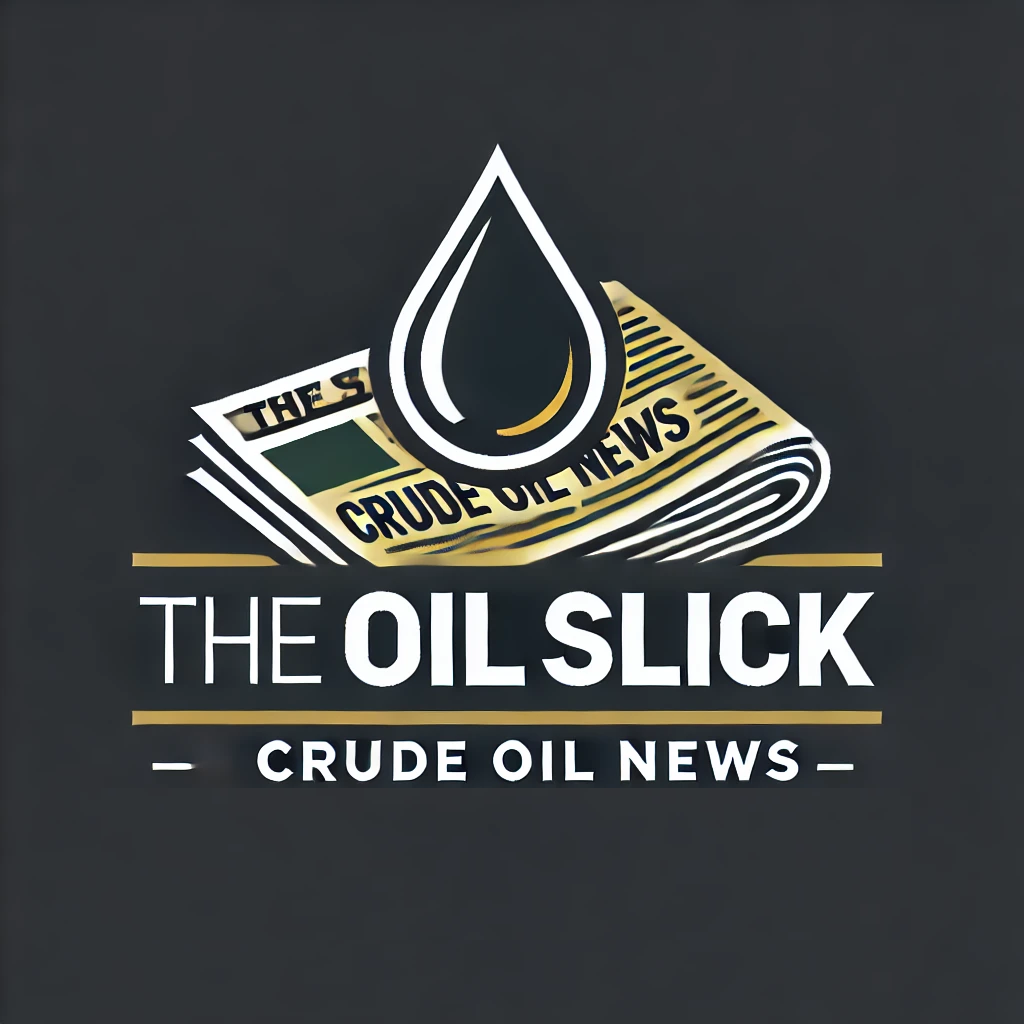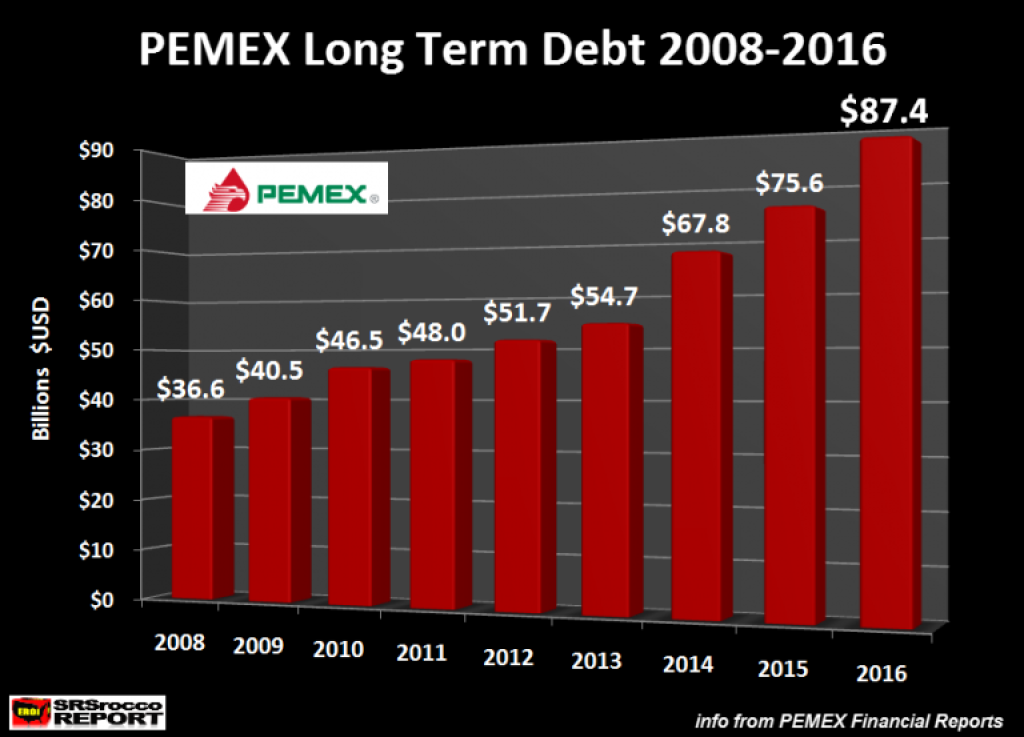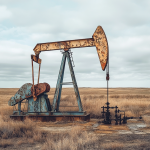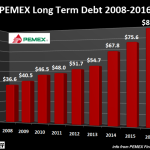Pemex's Struggles: Debt, Government Support, and a Challenging Future
Once one of the world’s most successful oil companies, the Mexican state-owned firm Pemex has been increasingly falling into debt over the last decade, only surviving by pursuing cheaper shallow-water oil operations and receiving government bailouts. The recently elected Mexican president, Claudia Sheinbaum, is expected to continue supporting President Andres Manuel Lopez Obrador’s (AMLO) ambitious oil and gas plans despite Pemex’s failings, in addition to adding renewable energy capacity. However, following years of safety failures and ongoing financial issues, many are questioning just how long Mexico’s oil and gas major can stay afloat.
Mexico has long relied on oil and gas production for revenue, boasting 5.978 billion barrels of proven crude reserves and a production rate of around 1.8 million barrels per day (bpd). Pemex has been a key player in Mexico’s oil industry, especially as AMLO curtailed foreign participation in the country’s energy market through nationalization policies. Despite this, the government has heavily invested in Pemex as it sank deeper into debt. Since 2019, the return on government investment in Pemex has dropped to just 1.4 pesos for every peso invested, compared to 5.7 pesos between 2015 and 2018, and significantly more in previous years.
Under the previous administration of Enrique Peña Nieto, the government aimed to end Pemex’s monopoly on Mexico’s oil industry, reducing the need for risky exploration activities by attracting greater private investment. However, President AMLO sought to make Mexico more self-sufficient by nationalizing much of its energy industry. This included the development of the new Dos Bocas oil refinery in Tabasco, operated by Pemex, which is expected to boost Mexico’s crude refining capacity and provide greater energy security. Considering the country’s six existing refineries currently operate at just 50 percent capacity, this could offer a major boost. However, this is expected to lead to a reduction in oil revenue as Mexico will stop exporting a significant portion of its crude. AMLO’s government has invested approximately $53 billion in public money into fossil fuels and offered $25 billion in tax cuts.
One of the main reasons for Pemex’s revenue decline is the decrease in oil production over recent decades. Previously a top-five oil producer, Pemex has fallen out of the top 10 crude producers worldwide in the last decade. Much of this decline is due to under investment in oil operations in recent years. For years, the government used oil and gas revenues irresponsibly instead of implementing fiscal reforms to support the development of new assets, forcing Pemex to borrow money. Pemex is now the most indebted oil company in the world, with a debt of around $102 billion, equivalent to about 7 percent of Mexico’s GDP. While it is still turning a profit on its exploration and production activities, its downstream operations are suffering losses. Due to its poor financial records, credit agencies have downgraded Pemex, making it more expensive for the firm to borrow.
Despite these challenges, President Sheinbaum is expected to continue backing AMLO’s oil and gas initiatives while also focusing on expanding Mexico's renewable energy capacity. The future of Pemex remains uncertain, with ongoing financial woes and safety concerns casting a shadow over its operations. The question remains: how long can Pemex stay afloat under these challenging conditions? Pemex is increasingly concerned that climate change awareness could hamper its investment prospects as many banks and investors divest from the fossil fuel industry. In 2022, Pemex acknowledged that "limitations from ESG financing" pose a significant threat, along with the "acceleration in energy transition that is decreasing the market for Pemex's crude oil and products." To mitigate these concerns, Pemex launched its first ESG strategy this year, aiming to attract investors despite its precarious financial situation. The company has pledged to achieve net-zero carbon emissions by 2050 and successfully reduced its greenhouse gas emissions by 2.3 percent between 2021 and 2022. Pemex plans to allocate 10 to 14 percent of its annual capital expenditure to its sustainability strategy.
However, Pemex's sustainability track record is marred by its continued gas flaring activities, making it one of the world's worst offenders. In 2022, Mexico ranked seventh globally in gas flaring, and it was the tenth-largest methane emitter in 2021. Despite these issues, Pemex has the potential to attract more investment if it reduces flaring and diversifies into renewable energy and critical mineral mining.
Newly elected President Claudia Sheinbaum has ambitious plans for Pemex, aiming to boost production from 1.5 million barrels per day (bpd) to 1.8 million bpd. It remains uncertain whether the government will absorb $40 billion of Pemex’s debt to support its expansion in oil activities and potential ventures into renewable energy and lithium mining. Attracting foreign investment will heavily depend on Pemex’s efforts to decarbonize and improve its ESG practices.
While there is some hope for Pemex’s future, several challenges stand in the way of a successful turnaround. The company's ability to adapt to the global shift towards sustainability and secure necessary investments will be crucial for its long-term viability.
 Español
Español








